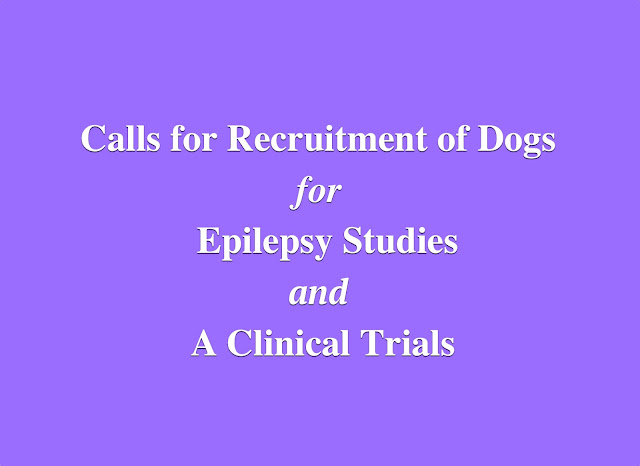K9 EPILEPSY CLINICAL TRIALS & STUDIES
⬇️ ⬇️ ⬇️ ⬇️ ⬇️
WHAT WAS THIS STUDY ABOUT? Dr. Muñana was “very actively recruiting” for this study, which is a new clinical trial, sponsored by the AKC-Canine Health Foundation, to “determine whether dogs with idiopathic epilepsy have alterations in their gut microbial population.” The study team at NCSU-CVM had a call-out (which we previously announced) “looking for households with an epileptic dog and an unaffected dog to compare the bacterial populations within their gastrointestinal tract." Feces were collected from both dogs to compare their gut microbiome. Samples had to be sent to NCSU-CVM (pre-paid shipping).
For information, contact:
Julie Nettifee, RVT, BS, VTS (Neurology) at: janettif@ncsu.edu
🐾🐾
AKC-Canine Health Foumdation Sponsored Study Evaluationg Functional MRI in Drug-Naïve Dogs.
For more information, contact:
Julie Nettifee, RVT, BS, VTS (Neurology) at: janettif@ncsu.edu
✷
A Dose Finding Study of Cannabidiol in Dogs with Intractable Epilepsy
Background and purpose of the trial:
"Epilepsy is currently reported to affect approximately 5% of the canine population; of that number approximately 30% of dogs are poorly controlled on routine anti-epileptic drugs (AEDs). Recent CBD research has demonstrated the anti-convulsive properties in both canine and human patients; however, to-date a dose finding study has not been performed in veterinary patients. For the initial phase of this study, our primary purpose is to determine a dose of CBD that will reduce the seizure frequency in canine patients to 50% or less."















